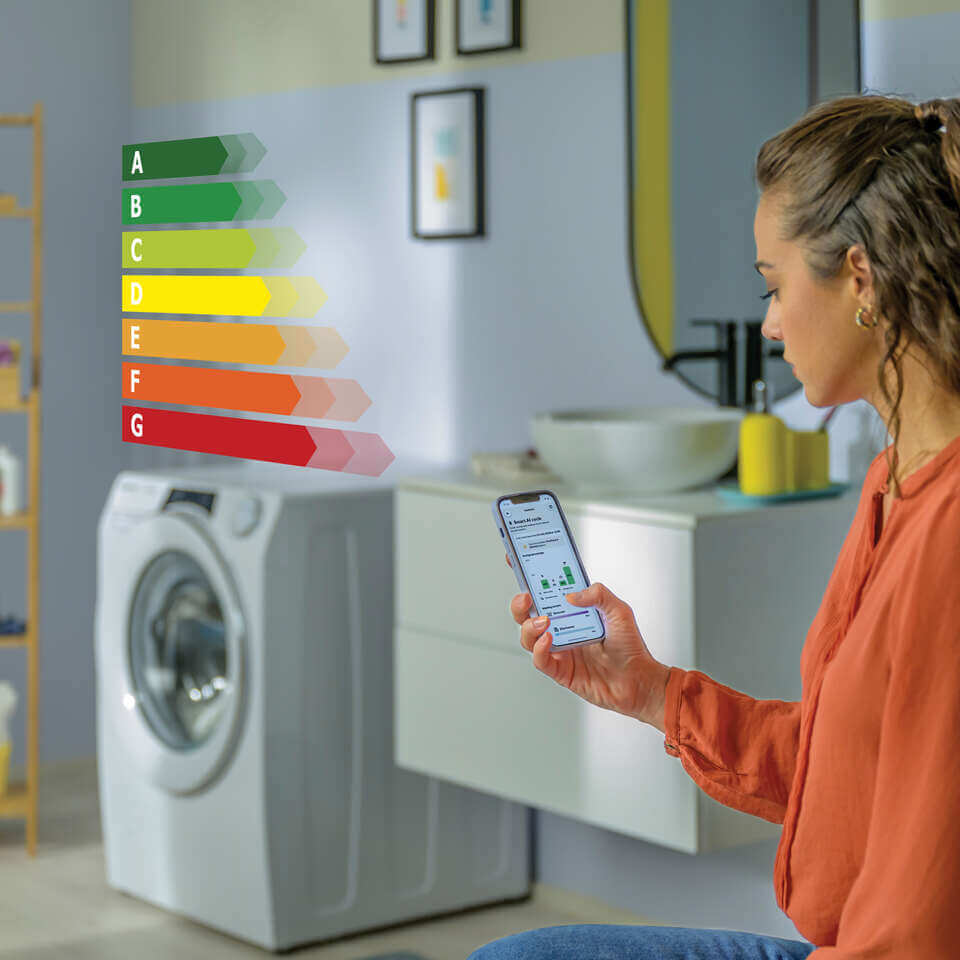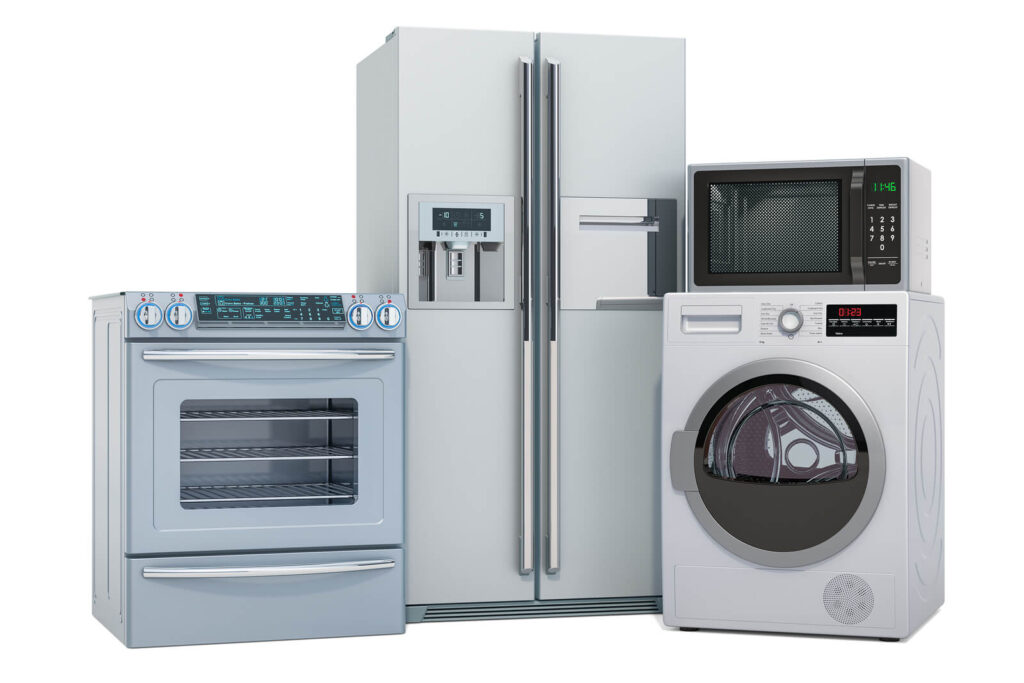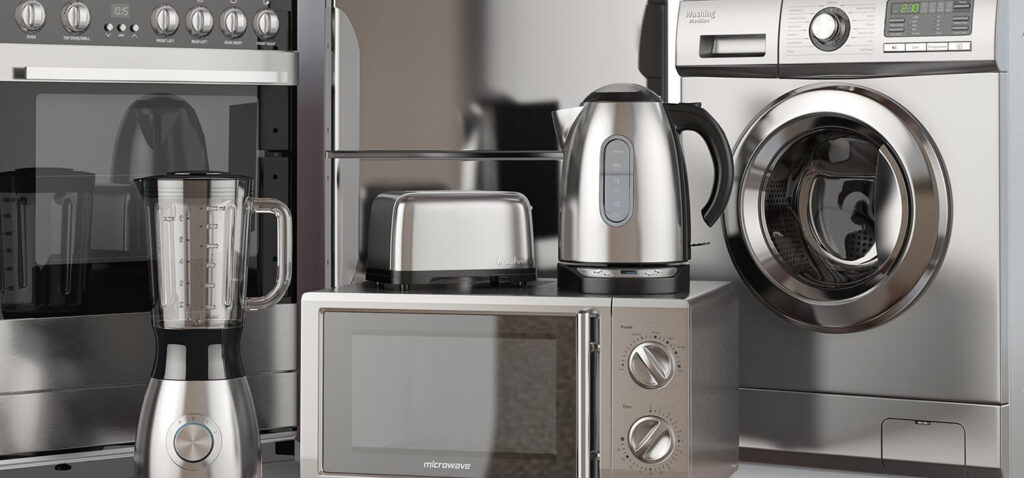
Energy efficiency isn’t just a buzzword anymore; it’s a lifestyle. With rising energy costs and increasing environmental concerns, it’s essential to make your home appliances work smarter, not harder. In this comprehensive guide, we’ll explore the world of appliance energy efficiency, covering everything from understanding the benefits to practical tips for saving money. So, grab your notepad, because we’re about to dive deep into the realm of energy savings!
Why Does Appliance Energy Efficiency Matter?
Let’s start with the basics. Why should you even care about appliance energy efficiency? Well, there are several compelling reasons:
- Save Money: The most apparent advantage is reduced energy bills. By optimizing the energy efficiency of your appliances, you’ll see a noticeable drop in your monthly expenses. Who doesn’t like saving some extra cash?
- Reduce Environmental Impact: Every unit of energy saved means fewer greenhouse gas emissions. When your appliances consume less power, you’re doing your part to combat climate change and reduce your carbon footprint. It’s a win for you and a win for the planet.
- Extended Appliance Lifespan: When appliances work efficiently, they experience less wear and tear. This, in turn, extends their lifespan, saving you money on premature replacements.
- Enhanced Home Comfort: Energy-efficient appliances often come with advanced features that can improve your overall home comfort. Think of a smart thermostat that adjusts the temperature just right or a quiet, efficient dishwasher that won’t disrupt your evening peace.
- Increased Property Value: A home equipped with energy-efficient appliances is more attractive to buyers. So, if you ever decide to sell, your property’s value may get a boost.
What Makes an Appliance Energy-Efficient?
Before we delve into the tips and tricks, let’s understand what makes an appliance energy-efficient. When shopping for new appliances, look for these features:
- Energy Star Certification: The Energy Star label is a gold standard for energy efficiency. It indicates that the appliance meets specific efficiency guidelines set by the Environmental Protection Agency (EPA). Energy Star appliances are designed to be at least 10-50% more energy-efficient than non-certified models.
- Inverter Technology: Inverter-driven appliances, like refrigerators and air conditioners, adjust their power consumption based on the demand. This results in more precise temperature control and lower energy usage.
- LED Lighting: Appliances that use LED lighting are not only more energy-efficient but also longer-lasting. So, consider appliances that use LEDs for displays and indicators.
- High Insulation: For appliances like water heaters and ovens, good insulation can significantly reduce heat loss. High-quality insulation materials ensure that the appliance retains heat better, requiring less energy to maintain the desired temperature.
Practical Tips for Appliance Energy Efficiency

Now, let’s get down to business. Here are some practical tips to make your appliances more energy-efficient and save some serious money:
Unplug or Use Power Strips
Appliances and electronics that are plugged in but not in use can still consume electricity, known as “energy vampires.” This includes devices on standby mode. Unplug them or use power strips to cut off the power supply to multiple devices at once.
Opt for Energy Star Appliances
When purchasing new appliances, always look for the Energy Star label. These appliances are specifically designed to reduce energy consumption. They might be a bit more expensive upfront, but the long-term savings are substantial.
Regular Maintenance
Appliances require TLC, just like your car. Regularly clean and maintain them to ensure they operate at peak efficiency. Some maintenance tasks include:
- Cleaning the lint traps in your dryer to allow for better airflow.
- Replacing air filters in heating and cooling systems.
- Cleaning the coils on your refrigerator to enhance heat transfer.
Be Smart About Cooking and Cleaning
In the kitchen, there are several energy-efficient cooking and cleaning practices to follow:
- Use lids on pots and pans while cooking to trap heat, reducing cooking time.
- Choose the right-sized pots and pans to match the size of your burners.
- Consider using a microwave for small tasks, which is more energy-efficient than firing up the oven.
- When cleaning, wait until you have a full load in your dishwasher or washing machine to maximize energy use.
Efficient Lighting
Your lighting choices can also affect your energy consumption. Here are some tips:
- Replace incandescent bulbs with energy-efficient LED bulbs. They consume significantly less energy and last much longer.
- Install motion sensors or timers in rooms that are often left with lights on.
- Make the most of natural light during the day to minimize artificial lighting use.
Smart Thermostats
Invest in a programmable thermostat or a smart thermostat. These devices allow you to set schedules that adjust the temperature based on your preferences and when you’re home. They can also be controlled remotely through smartphone apps.
Seal Gaps and Insulate
Proper insulation and sealing gaps in your home can significantly reduce the workload on your heating and cooling systems. This leads to energy savings. Consider adding weatherstripping to doors and windows, insulating your attic, and sealing any leaks in your ductwork.
Choose Cold Water for Laundry
Did you know that about 90% of the energy used by your washing machine goes into heating water? By switching to cold water for laundry, you’ll save energy and reduce your energy bills. Plus, it’s gentler on your clothes!
Energy-Efficiency by Appliance Type

Different appliances have unique energy-saving opportunities. Here’s a breakdown by appliance type:
Refrigerators and Freezers
- Keep the coils clean.
- Set the right temperature. Your fridge should be between 37-40°F (3-4°C), and your freezer should be around 0°F (-18°C).
- Don’t overstuff your fridge; proper air circulation is essential.
Washing Machines and Dryers
- Opt for front-loading washing machines, which are more energy-efficient.
- Use a dryer with a moisture sensor to avoid over-drying clothes.
- Clean your dryer’s lint filter after every use.
Dishwashers
- Run full loads to maximize efficiency.
- Use the energy-saving or eco cycle when possible.
- Let your dishes air dry instead of using the heat-dry function.
Ovens and Stoves
- Use the right-sized cookware for your burners.
- Preheat your oven only when necessary.
- Opt for glass or ceramic cookware, which retains heat and cooks food more efficiently.
Water Heaters
- Lower the temperature setting to 120°F (49°C).
- Insulate hot water pipes to reduce heat loss.
- Consider a tankless water heater for on-demand hot water.
Heating and Cooling Systems
- Change air filters regularly (typically every 1-3 months).
- Schedule annual maintenance to ensure your system operates efficiently.
- Upgrade to a more energy-efficient HVAC system if your current one is outdated.
Advanced Techniques for Energy Efficiency
For the tech-savvy and those looking to take their energy efficiency to the next level, consider these advanced techniques:
- Solar Panels: Investing in solar panels can significantly reduce your electricity bills and allow you to generate your electricity. Depending on your location and the size of your solar installation, you might even be able to sell excess energy back to the grid.
- Home Automation: Home automation systems, like smart thermostats and lighting controls, can optimize energy use based on your habits. They can learn when you’re home and adjust settings accordingly.
- Energy Audits: Consider having a professional energy audit of your home. They can pinpoint areas where energy is being wasted and suggest tailored solutions to improve efficiency.
Energy-Efficient Appliances That Pay for Themselves
Some energy-efficient appliances are so efficient that they can pay for themselves over time through energy savings. Examples include:
- Energy-efficient windows and doors.
- High-efficiency heat pumps and air conditioners.
- Tankless water heaters.
- Energy-efficient insulation.
A Greener, Wallet-Friendly Lifestyle
In conclusion, appliance energy efficiency isn’t a passing trend; it’s a way of life that benefits you and the environment. You have the power to lower your energy bills, reduce your carbon footprint, and enhance your overall comfort. Being energy-wise doesn’t have to be complicated or costly. Start with small changes, like unplugging energy vampires and using LED bulbs, and work your way up to more significant upgrades, such as energy-efficient appliances and even solar panels. By making your appliances lean, mean, and green, you’re not just saving money—you’re making a positive impact on the world. So, what are you waiting for? Take these energy-saving tips to heart and start your journey to a greener, wallet-friendly lifestyle today!
Additional Strategies for Maximum Energy Savings
If you’re looking to take your energy-saving efforts to the next level, here are some additional strategies that can help you achieve maximum energy savings:
- Home Insulation: Proper insulation in your home can be a game-changer when it comes to energy efficiency. Insulating your attic, walls, and floors helps maintain a consistent indoor temperature, reducing the workload on your heating and cooling systems. This means less energy consumption and lower bills.
- Window Upgrades: Old, drafty windows can be a major source of energy loss. Consider upgrading to energy-efficient windows that provide better insulation. Double-paned or even triple-paned windows with low-emissivity coatings can significantly reduce heat transfer, keeping your home comfortable and your energy bills low.
- Energy-Efficient Appliances That Pay for Themselves: Some energy-efficient appliances are so efficient that they can pay for themselves over time through energy savings.
- Home Energy Management Systems: Investing in a home energy management system can help you monitor and control your energy usage. These systems provide real-time data on your energy consumption, allowing you to make informed decisions to reduce your energy bills further.
- Off-Peak Energy Usage: Many utility companies offer off-peak pricing, where electricity is cheaper during non-peak hours. Consider shifting your energy-intensive tasks, like running your dishwasher or doing laundry, to off-peak times to take advantage of lower rates.
- Energy-Efficient Landscaping: Believe it or not, your landscaping can play a role in energy efficiency. Planting trees strategically can provide shade to your home during hot summer months, reducing the need for air conditioning. Similarly, planting windbreaks can shield your home from cold winter winds, reducing heating costs.
By implementing these additional strategies, you can further enhance your energy efficiency efforts and experience even more significant savings on your energy bills. It’s all about making smart choices and being conscious of how you use energy in your daily life.
Final Words
Appliance energy efficiency isn’t a one-size-fits-all solution. It’s a combination of making informed choices when buying new appliances, practicing good maintenance habits, and adopting energy-saving practices in your daily life. By following these tips and implementing advanced strategies where possible, you can reduce your energy consumption, lower your bills, and contribute to a more sustainable and eco-friendly future. So, what are you waiting for? Take the first step towards a greener, wallet-friendly lifestyle today!
Frequently Asked Questions (FAQ)
Have questions about appliance energy efficiency and how it can help you save money? We’ve got you covered. Here are answers to some common queries that can guide you on your journey to a greener, more wallet-friendly lifestyle:
1. What does “Energy Star” mean, and why is it essential for appliance shopping?
Energy Star is a certification program backed by the Environmental Protection Agency (EPA) in the United States. It identifies and promotes energy-efficient products, including appliances. When you see the Energy Star label on an appliance, it means that it meets specific energy efficiency standards. Choosing Energy Star appliances is essential because they can significantly reduce your energy consumption, leading to lower bills and a reduced carbon footprint.
2. What are some simple ways to make my appliances more energy-efficient?
There are several simple strategies to boost the energy efficiency of your appliances:
- Unplug appliances when not in use to prevent “energy vampires.”
- Regularly clean and maintain your appliances to ensure they operate efficiently.
- Use LED bulbs, which are energy-efficient, for lighting.
- Choose the right-sized pots and pans for cooking to reduce energy waste.
- Consider using cold water for laundry to save energy and extend the life of your clothes.
3. Is upgrading to energy-efficient appliances worth the initial cost?
Yes, it’s generally worth the investment. While energy-efficient appliances may have a slightly higher upfront cost, they can save you money in the long run by reducing your energy bills. Over time, the energy savings can offset the initial purchase price, making it a financially sound decision. Plus, you’ll be contributing to environmental conservation by reducing your carbon footprint.
4. How can I determine the energy efficiency of my existing appliances?
You can use various online tools and calculators to estimate the energy consumption of your current appliances. Additionally, most appliances have EnergyGuide labels that provide information about their estimated annual energy use and operating costs. This information can help you assess how energy-efficient your appliances are and decide whether it’s time for an upgrade.
5. What is a programmable thermostat, and how can it help with energy savings?
A programmable thermostat is a device that allows you to set schedules for your heating and cooling systems. You can adjust the temperature based on your daily routines, lowering it when you’re away or asleep and raising it when you’re at home. This fine-tuned control can result in significant energy savings and lower heating and cooling costs.
6. Are there government incentives or rebates for energy-efficient appliances?
Yes, many governments and utility companies offer incentives and rebates to encourage the purchase of energy-efficient appliances. These incentives can help offset the initial cost of the appliance and may include tax credits, cash rebates, or discounts. Check with your local utility provider and government agencies to find out about available programs in your area.
7. How can I determine the energy efficiency of lighting in my home?
To assess the energy efficiency of your lighting, you can:
- Replace incandescent bulbs with energy-efficient LED or CFL (compact fluorescent) bulbs.
- Use timers, motion sensors, and dimmers to control lighting and reduce energy consumption.
- Take advantage of natural light by opening curtains and blinds during the day to minimize the need for artificial lighting.
8. Can I make my existing home more energy-efficient, or do I need to buy a new one?
You don’t need to move to a new home to improve energy efficiency. You can retrofit your existing home by upgrading insulation, sealing gaps, and replacing old windows and doors. You can also invest in smart home technology and energy-efficient appliances. These improvements can significantly reduce your energy consumption and make your current home more efficient and eco-friendly.
9. Are solar panels a good investment for energy efficiency?
Solar panels can be a great investment for energy efficiency. They generate electricity from sunlight and can significantly reduce your electricity bills. Depending on your location, the size of your installation, and available incentives, solar panels can pay for themselves over time and even generate income by selling excess energy back to the grid.
10. How can I find out if my local utility offers off-peak energy pricing?
To determine if your local utility offers off-peak energy pricing, visit their website or contact their customer service. Utility companies often have information about different rate plans, including off-peak pricing options. By shifting energy-intensive tasks to off-peak hours, you can save money on your energy bills.